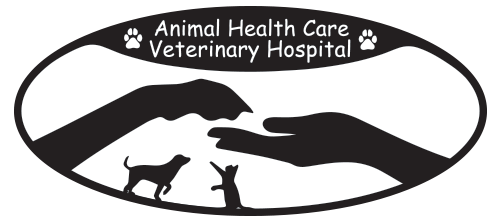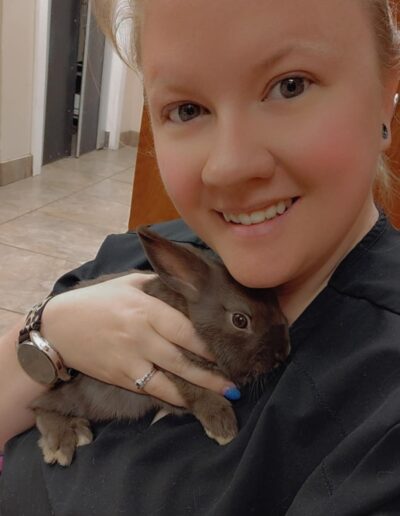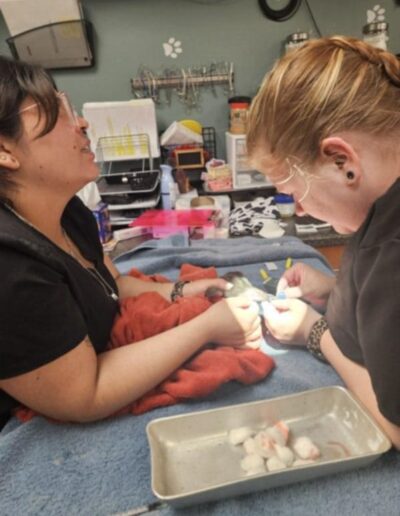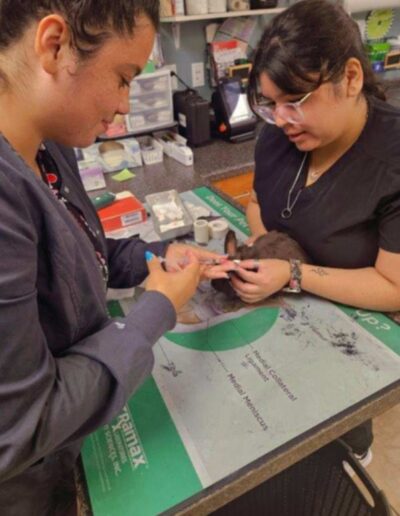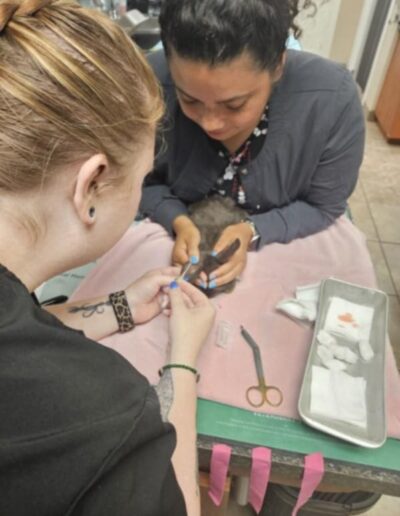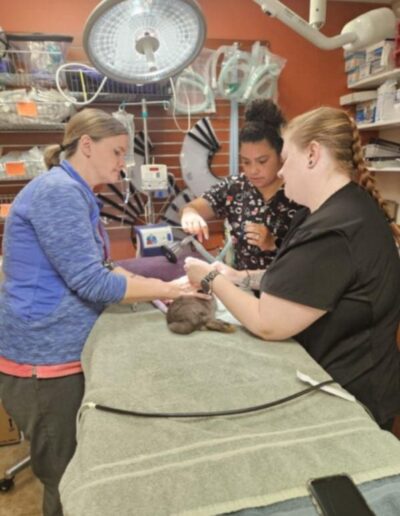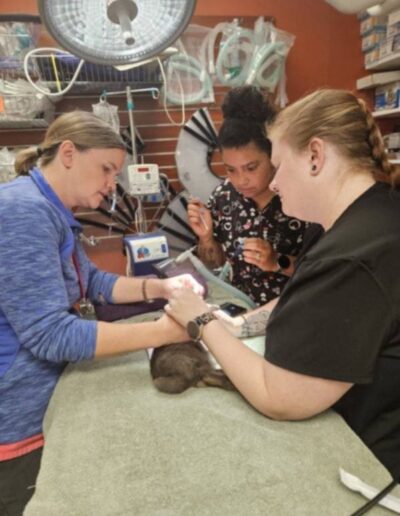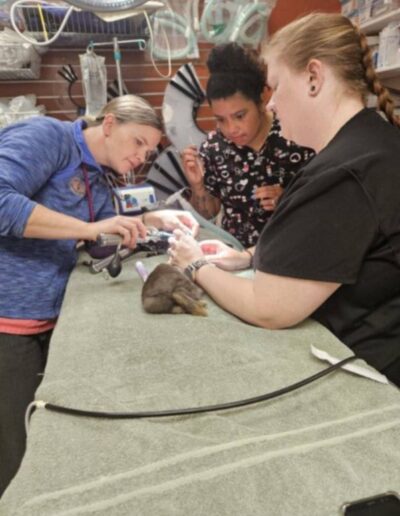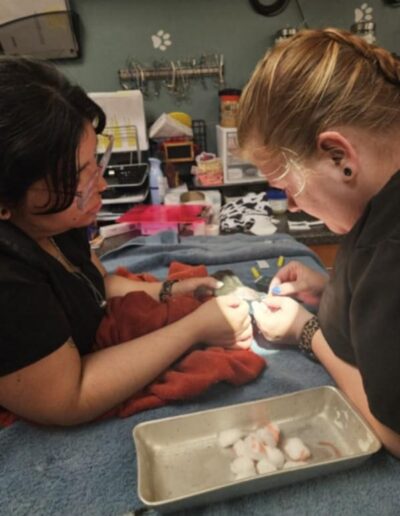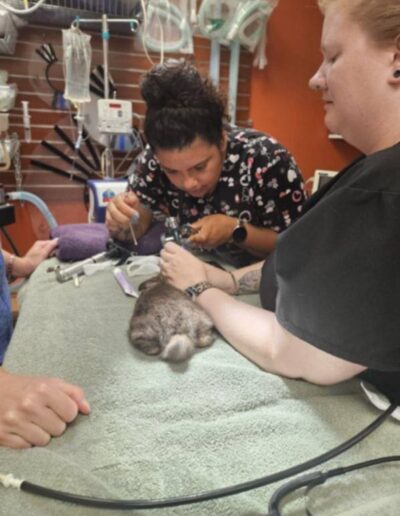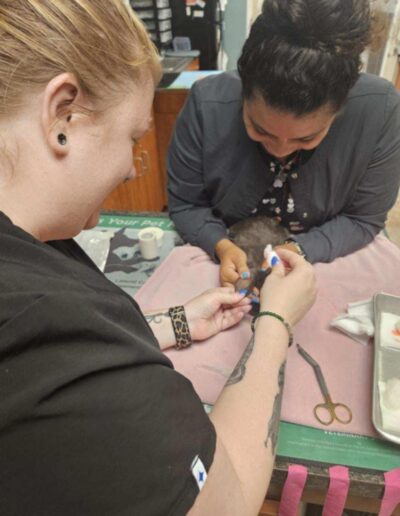Pocket Pet Care
Pocket pets, also known as exotic pets, refer to small non-traditional animals commonly kept as pets. These can include small mammals like rabbits, guinea pigs, hamsters, gerbils, rats, mice, hedgehogs, chinchillas, sugar gliders, and ferrets.
Veterinary care for pocket pets is essential to ensure their well-being and longevity. It’s important to note that each animal species has its specific care requirements, so potential pocket pet owners should thoroughly research and understand the needs of the particular animal they wish to keep as a pet.
Indications for pocket pets to be evaluated by a veterinarian include:
- Regular Check-ups: Regular wellness exams are crucial for pocket pets to identify any health issues early on and ensure they are in good health.
- Changes in Behavior: Any sudden changes in behavior, such as lethargy, loss of appetite, aggression, or excessive hiding, may indicate an underlying health problem that needs to be addressed.
- Respiratory Issues: Sneezing, coughing, difficulty breathing, or nasal discharge may be signs of respiratory infections, which are common in some pocket pet species.
- Dental Problems: Overgrown teeth, difficulty eating, drooling, or weight loss can indicate dental issues that require attention.
- Skin Conditions: Skin problems like lesions, hair loss, or abnormal scaling may point to parasites, infections, or allergies.
- Gastrointestinal Disturbances: Diarrhea, constipation, or bloating can be signs of digestive problems.
- Reproductive Health: Breeding pocket pets requires specialized knowledge and care. If you have breeding animals, it’s essential to consult with a veterinarian experienced in exotic animal reproduction.
- Trauma or Injuries: Any accidents, falls, or injuries require immediate veterinary attention.
- Parasite Control: Regular deworming and parasite prevention are essential for the well-being of pocket pets.
- Nutritional Guidance: Proper nutrition is critical for pocket pets, and veterinarians can provide guidance on appropriate diets for each species.
- Geriatric Care: As pocket pets age, they may develop age-related health issues that need to be managed carefully.
Remember, early detection and treatment of health problems are crucial for pocket pets since they are often small and may hide signs of illness until they become severe. Regular veterinary check-ups and attentive care at home are essential for keeping pocket pets healthy and happy.


